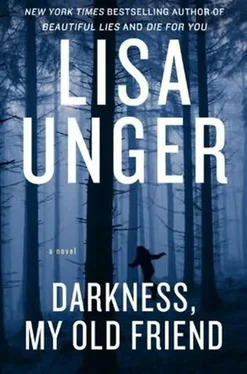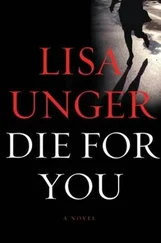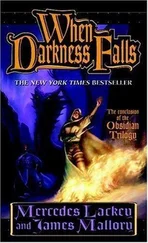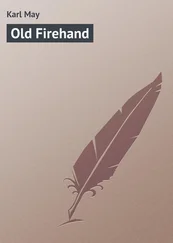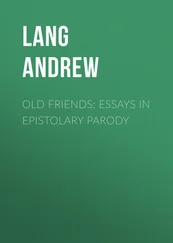She visited the sites daily. Sometimes later on she’d get a vision or hear something, as if the Internet could connect her to the energy that gave her her peculiar abilities. Then she’d make a proactive call to the authorities. More these days than in the beginning, they worked with her. She had a reputation now. Plus, the whole psychic thing wasn’t such an oddity; it was part of the public consciousness. People thought that it was possible, were more open to it. Occasionally they gave her a hard time, were very rude. She didn’t care. She just did what she had to do.
Sometimes people called her, finding her through referrals or an online search. Sometimes then the visions came as if in answer to the need. And as often they didn’t. People were frequently disappointed in her. They got angry. Eloise understood.
She’d been angry once, too, when Alfie and Emily were taken from her. She’d wanted to lay blame, seek restitution. The anger was a worm inside her, gnawing at the back of her throat, squirming in her gut. She’d wanted the driver of that tractor-trailer to pay. He had a problem with pills, taking amphetamines to stay awake, then downers to sleep. That morning his addiction caught up with him. He’d passed out at the wheel, drifted into oncoming traffic, and sent their car rolling. He emerged from the accident unscathed.
Eloise had wished him dead; she had hoped for him to lose everything he loved-his family, his money, his whole world. She wanted him to know all her pain, times ten. It kept her up at night. Once, before his trial began, she considered buying a gun and bringing it to the courthouse and shooting him dead. The only thing that stopped her was Amanda, her pale-faced angel. Eloise was all she had left. She thought of how her daughter had managed everything with such stoic acceptance. She’d bear that, too, so bravely. And at some point she’d self-destruct and there wouldn’t be anyone left to save her.
Then Eloise met him, Barney Croft, the man who’d killed her family. And when she looked in his face, she saw how broken, how undone he was-by addiction, by regret, by his hardscrabble existence. She saw him standing outside the courthouse with his lawyer. The lawyer had his hand on Croft’s shoulder. Croft smoked a cigarette. Eloise had been coming in from a crying jag in her car, to listen to the rest of the testimony. She walked over to him; she couldn’t help herself. She wanted him to see her. She wanted him to see what he had done to her.
The lawyer saw her first, put up a hand as if to ward her off. Then Croft turned around. She saw the color drain from his face as her own heart started to pound and her throat swelled.
“Oh, Lord,” he said. And all she smelled was his cigarette smoke and his misery. “Forgive me. In the name of the Lord, please forgive me.” He put his head in his hands then and started to weep, his whole body shaking with it, the cigarette still clutched between his thick fingers.
Maybe that was where it started. Because looking at him, she saw how life had ground him down. It dwelled in his ruddy skin and in the deep lines around his eyes, in the narrow gap of his thin-lipped mouth. She saw how he drove to support his family, how he took pills to drive longer, to make more. How then he needed more pills to sleep. And how the human body was not designed to live on drugs and bad food and endless miles of dark highways. She saw so clearly how people make the wrong choices for the right reasons and blow everyone up, anyway.
“I do,” she said. “I forgive you.”
She meant it. The worm in her gut got smaller. At the sentencing she spoke for leniency and offered him her forgiveness in front of the judge and television cameras. The worm grew smaller still. But that’s when she started to lose Amanda.
On her desk was a photograph of her daughter, grown now with her two young children, Alfie and Emily (over Eloise’s protests-she didn’t believe in naming the living for the dead). Amanda was happily married, a successful accountant, a wonderful mother-and living as far away from Eloise as possible, in Seattle.
Downstairs, she heard the door open and close, then heavy footfalls on the stairs. Ray had a distinctive way of entering her home when she neglected to lock the door, as if knocking were beneath him.
“Eloise?”
Oliver jumped from her lap, annoyed by the intrusion. They passed each other in the doorway.
“I hate that cat,” said Ray.
“I don’t think he’s overly fond of you.”
He sat across from her desk, put down a paper bag he was carrying, and steepled his fingers. “So.”
“Seriously, Ray. What is it with you? Do you think I wouldn’t have called?”
“Let’s do it, then.”
She released a deep breath. She knew he was going to ask her to do this. She hated it. It was painful, exhausting. And, frankly, she didn’t know how much longer she was going to be able to do it, to do any of it. Ray was in deep denial, but Eloise knew that her time was almost up.
“What did you bring?”
“Shoes.”
Shoes were good, very good. Feet were the place where the body most often connected to the earth, all the energy passing through the soles.
“You should see that place,” Ray said. “Holt’s father was a hoarder. It’s disturbing.”
“Is that where he found her shoes?”
“Yeah, the old man kept everything.”
“You know the Hollows PD asked Jones Cooper to look into the case.”
Ray frowned. “I didn’t hear about this.”
“He told me today. I thought he’d come to you next.”
“Why did he come to see you?”
“He remembered that I cleaned for her, baby-sat for the children sometimes. He wanted to know what my impressions were.” That wasn’t really true. She didn’t really want to get into their whole conversation. She didn’t want to tell Ray that she’d shared her vision with Jones. She didn’t even know why.
Ray didn’t say anything, cast his eyes up to the ceiling. She stared at the bag he’d put on her desk.
“We don’t know that my vision yesterday was related to Marla Holt,” she said. “It could have been anyone. I was just online, looking. It could be someone else.”
“Did you find anything?”
“No,” she admitted.
The intensity he’d had yesterday was reduced to embers; he seemed as tired as she felt. He wasn’t looking well lately. His wife had left him almost two years ago now. His kids, both living and working in Manhattan, didn’t seem to have much time for him. That’s what happened when you couldn’t join the living. Late to dinner, distracted when you were there. Ray drank too much, got morose about all the ugly things he’d seen and couldn’t change. His wife wanted to play golf and vacation in the Bahamas. Ray wanted to dig up graves. Who could blame the poor woman for leaving?
“I heard from Karen,” Ray said. They read each other’s minds. It was that way with them, even after they’d ended their affair.
“Oh?” said Eloise.
“She’s getting married again.”
Eloise gave a little laugh. “She must be out of her mind.”
Ray smiled, too. “She met a retired doctor. Get this. She met him while she was taking ballroom-dancing classes.”
Karen had always been asking Ray to take ballroom-dancing classes with her. He’d never had the time or, he’d confessed to Eloise, the desire.
“I’m sorry, Ray,” Eloise said.
He lifted a dismissive hand. “I’m happy for her. She deserves it.”
Karen did deserve happiness. She’d been a good wife to Ray and a loving mother to their children. She was beautiful and vibrant, a kind person. And Ray had treated her badly; so had Eloise, for that matter. Eloise would have dinner at the Muldunes’ on a Sunday, sleep with Ray the following Wednesday. It wasn’t tawdry or dirty; it was desperate and sad. But that was so long ago. They were all different people now.
Читать дальше
